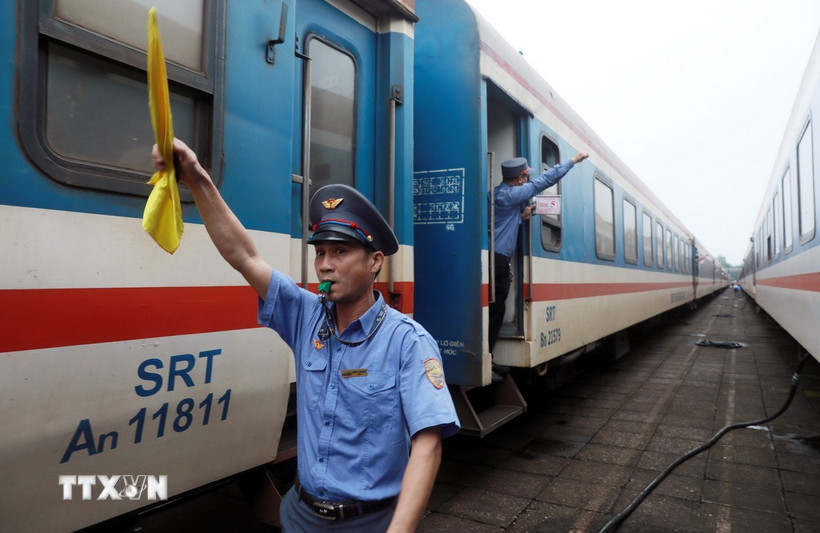HCMC – Vietnam plans to train at least 35,000 railway workers between 2025 and 2030 to meet labor demand for high-speed and urban railway projects, according to a new Government decision.
Deputy Prime Minister Le Thanh Long on October 9 signed Decision No. 2230/QD-TTg approving a national plan for railway human resource development through 2035, with a vision to 2045.
The plan seeks to build a skilled workforce capable of implementing high-speed rail, electrified national railway, and urban metro projects. It also seeks to help Vietnam master railway technologies and enhance the competitiveness of its railway industry.
From 2025 to 2030, at least 35,000 workers will be trained, including around 1,000 postgraduates, 14,000 university graduates, 11,000 college-level trainees, and 9,000 vocational-level trainees.
By specialization, about 4,700 people will be trained in railway construction engineering, 16,300 in construction engineering, 3,700 in signaling and communication, 1,100 in railway power and energy systems, 1,700 in locomotives and rolling stock, 1,500 in construction and transport economics, and 6,000 in railway operations.
Training will focus on railway construction, operations, signaling, power systems, and rolling stock. About 5,000 people will receive professional training in operating and maintaining urban railways, while 500 government officials will undergo management training.
During the 2031–2035 period, the plan targets training at least 70,000 workers to serve national railway development. This includes 2,000 postgraduates, 18,000 university graduates, 30,000 college-level trainees, and 20,000 vocational trainees.
It also aims to train over 40,000 workers for railway operations and maintenance, including 13,800 for high-speed railways, 5,000 for national railways, and 21,200 for urban lines.
By 2045, Vietnam expects to establish several regional centers for railway training and technology transfer to support advanced research and industry development.
To achieve these goals, the plan outlines measures to improve regulations, enhance training and research capacity, promote technology transfer, expand international cooperation, and mobilize investment, including public-private partnerships.









